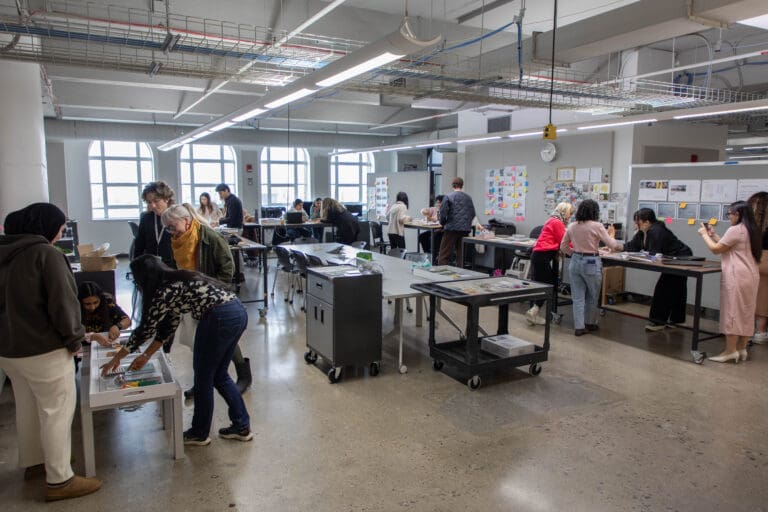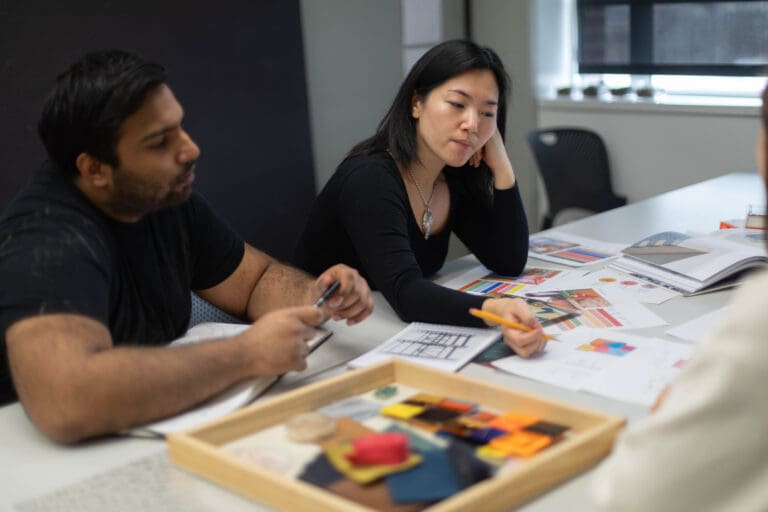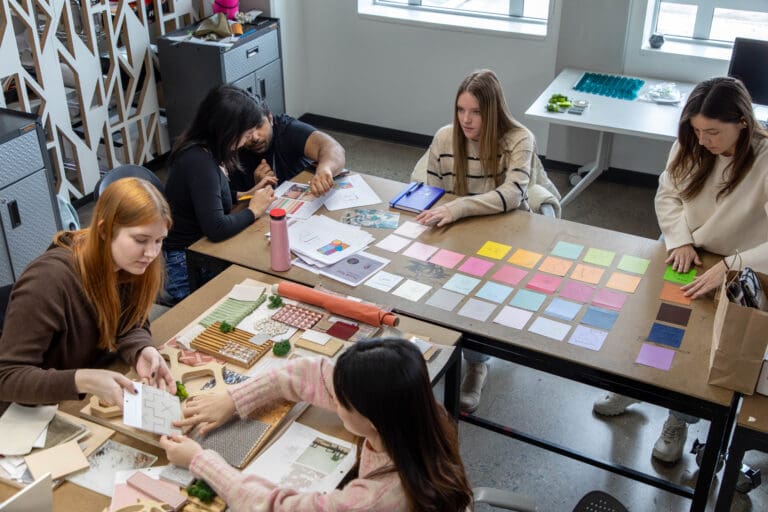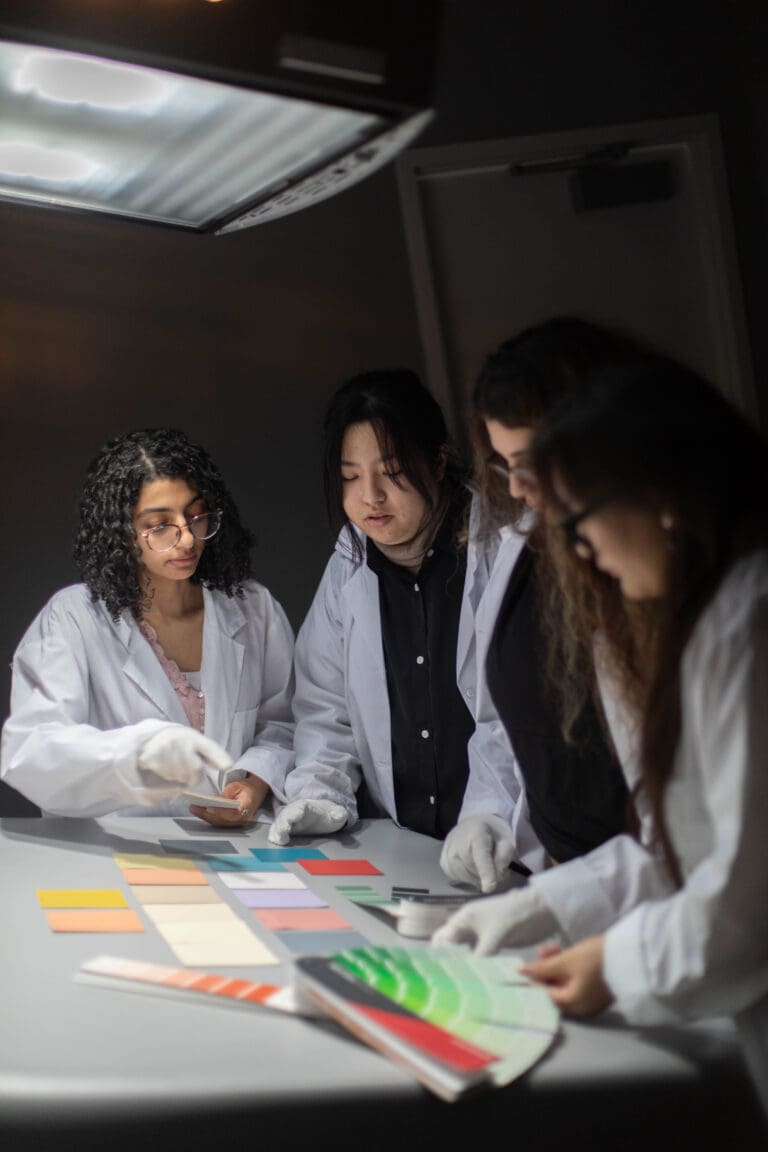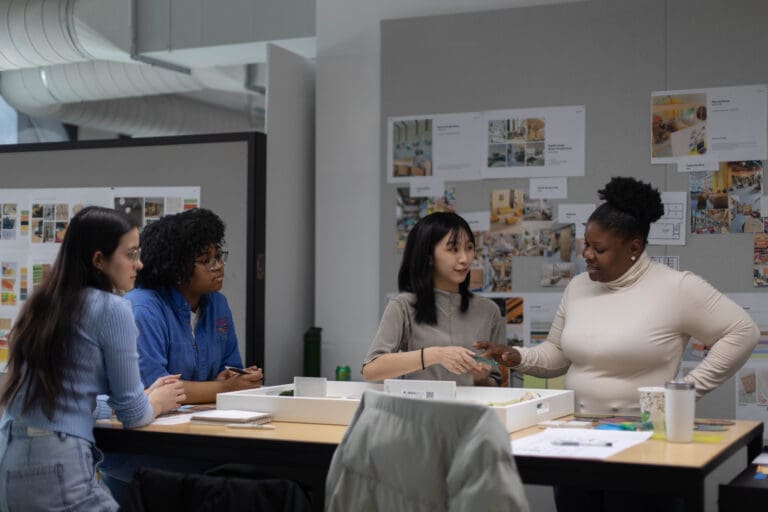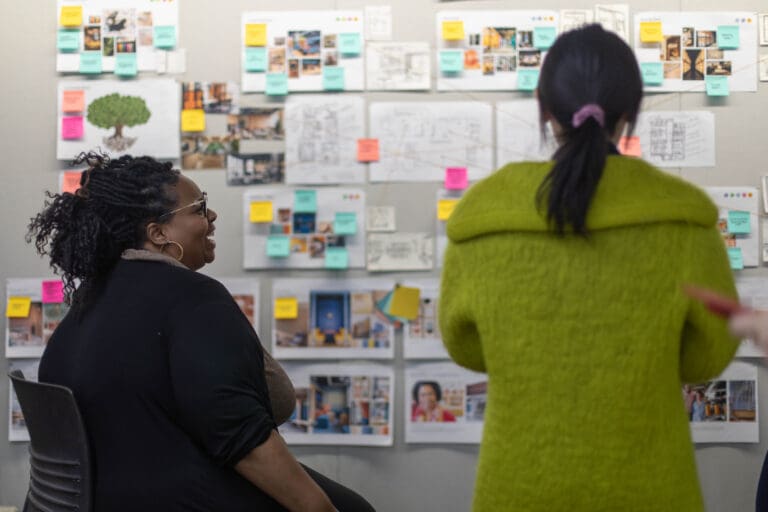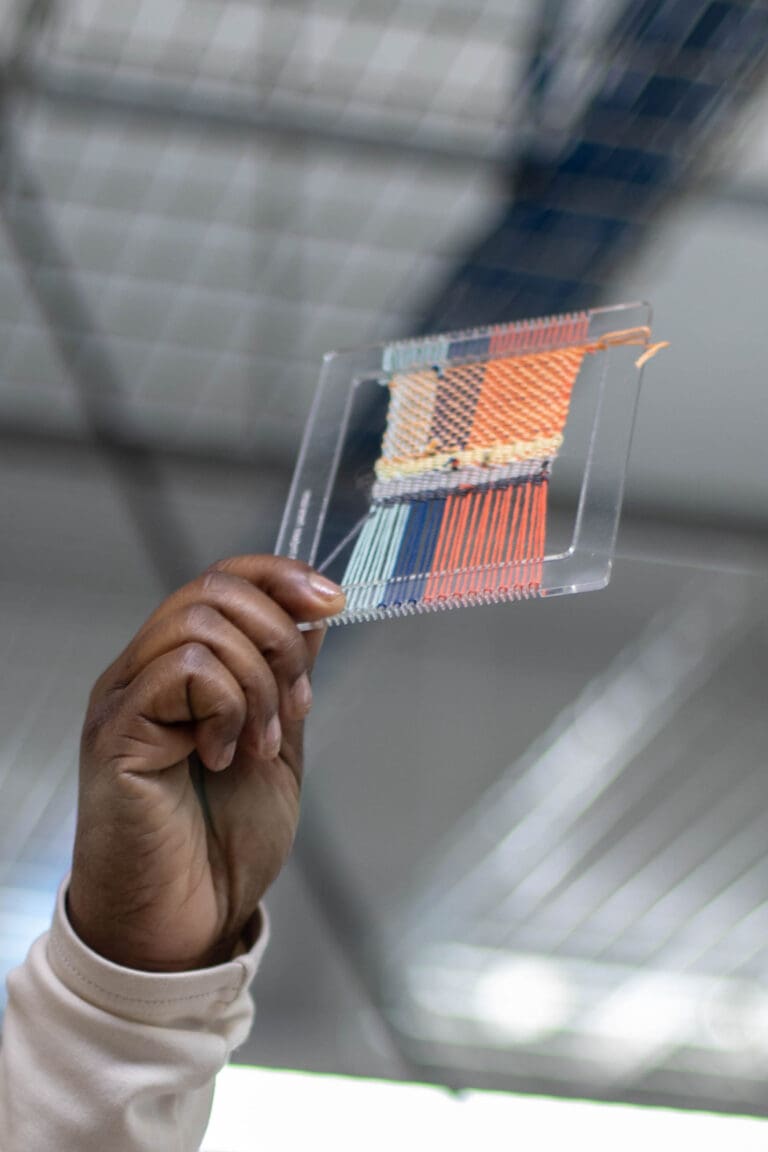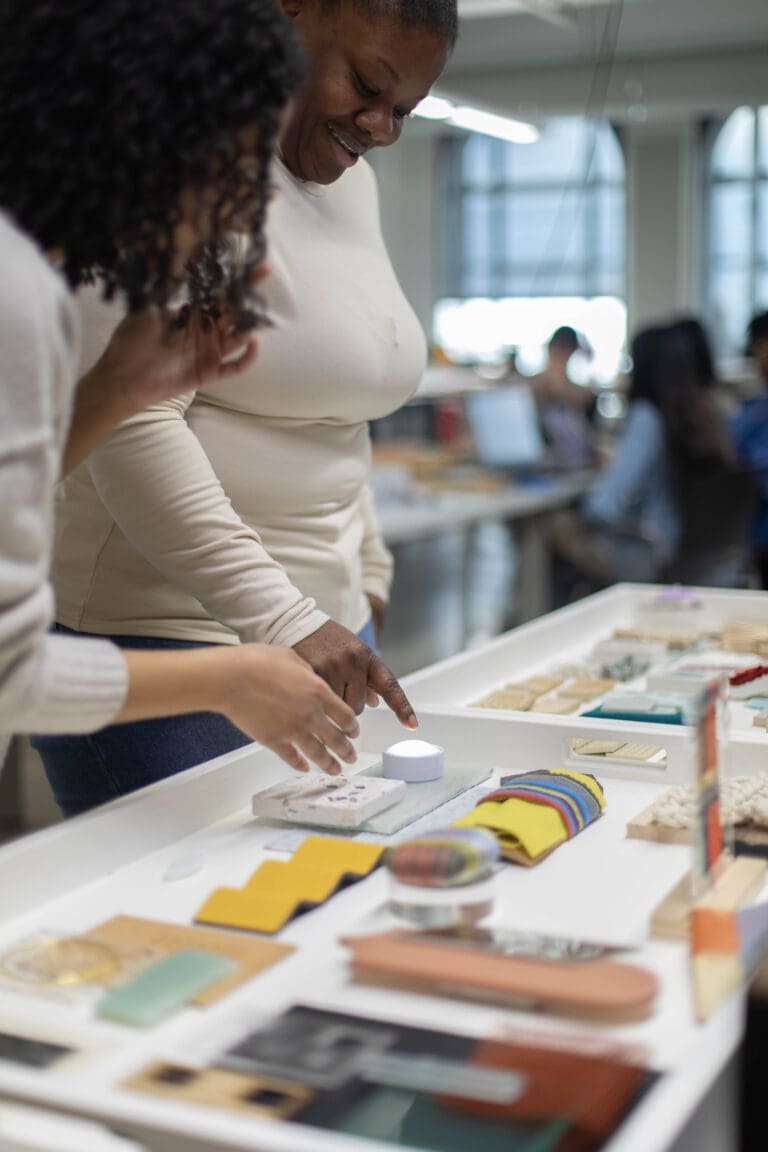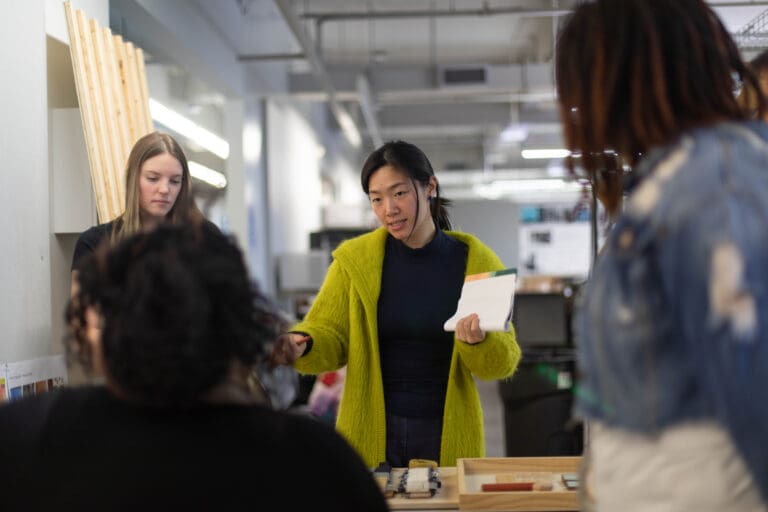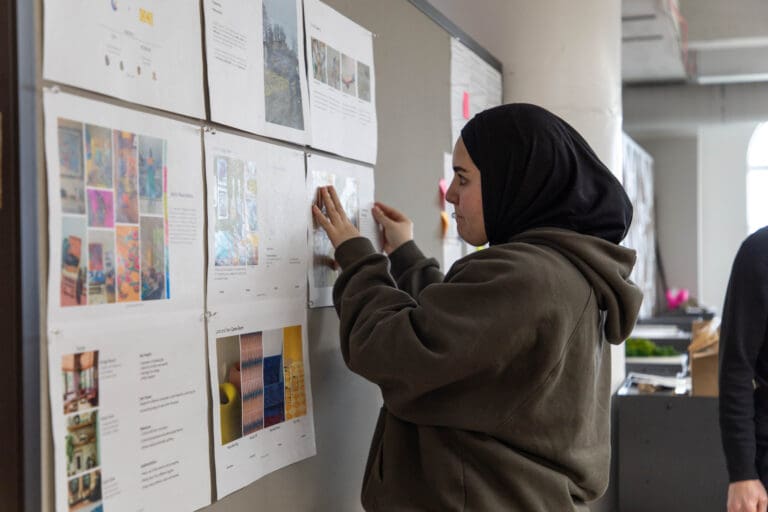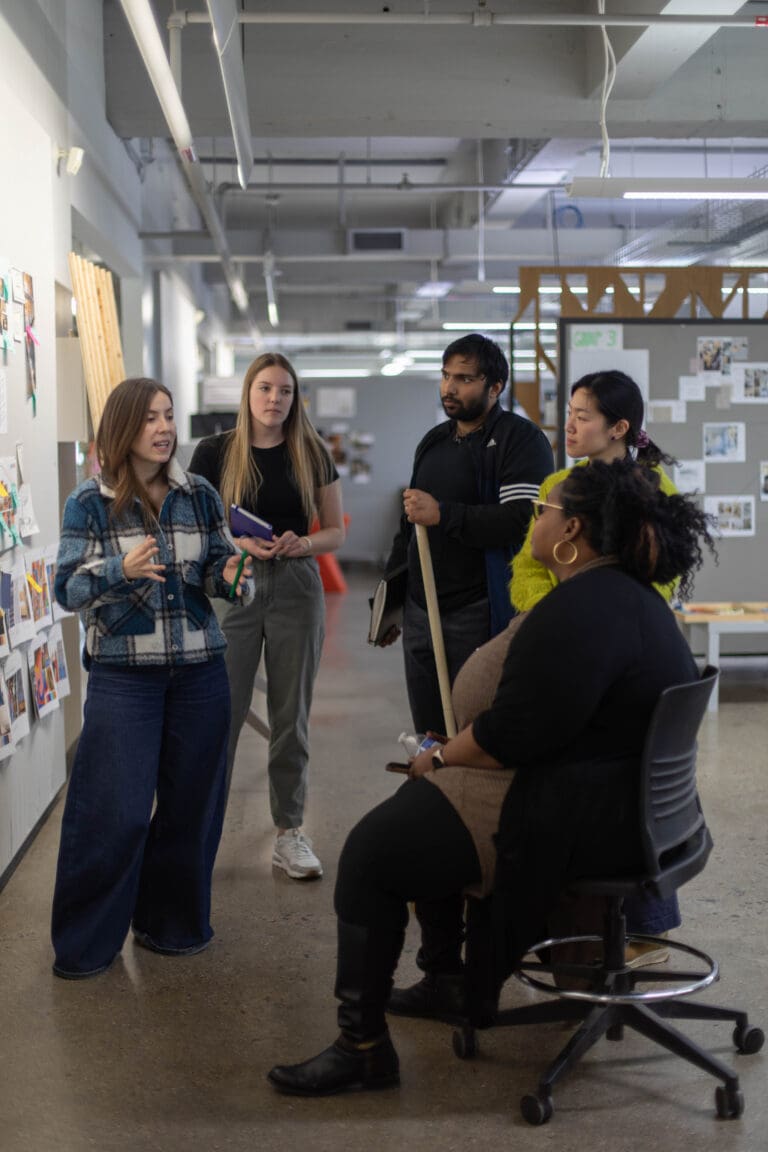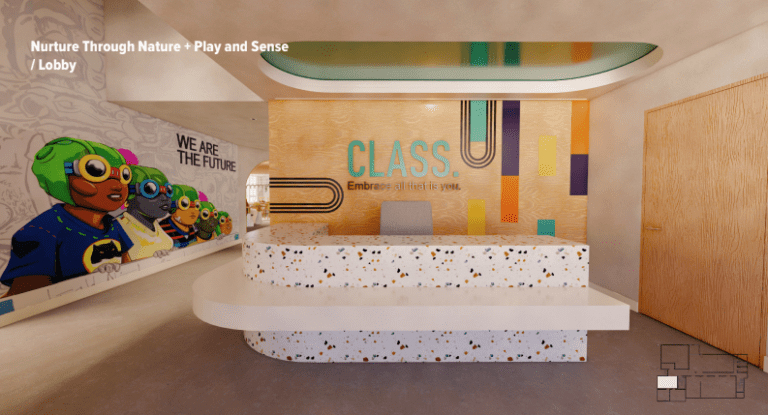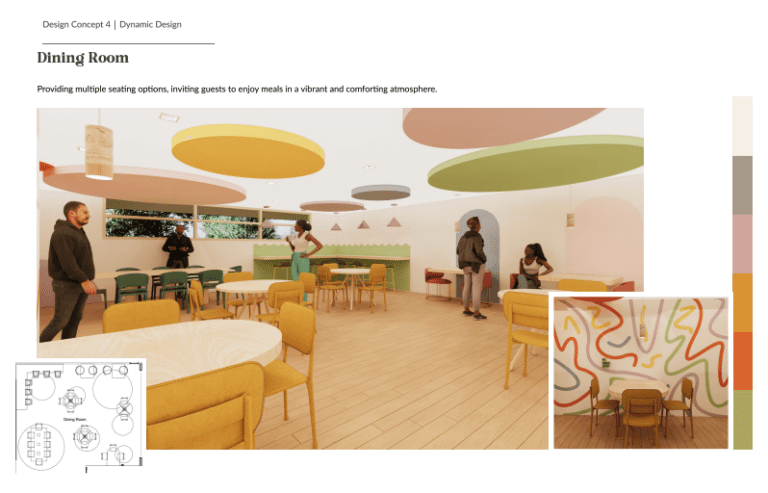CCS Students Collaborate with C.L.A.S.S. to Design a Hub of Hope and Healing
August 21, 2024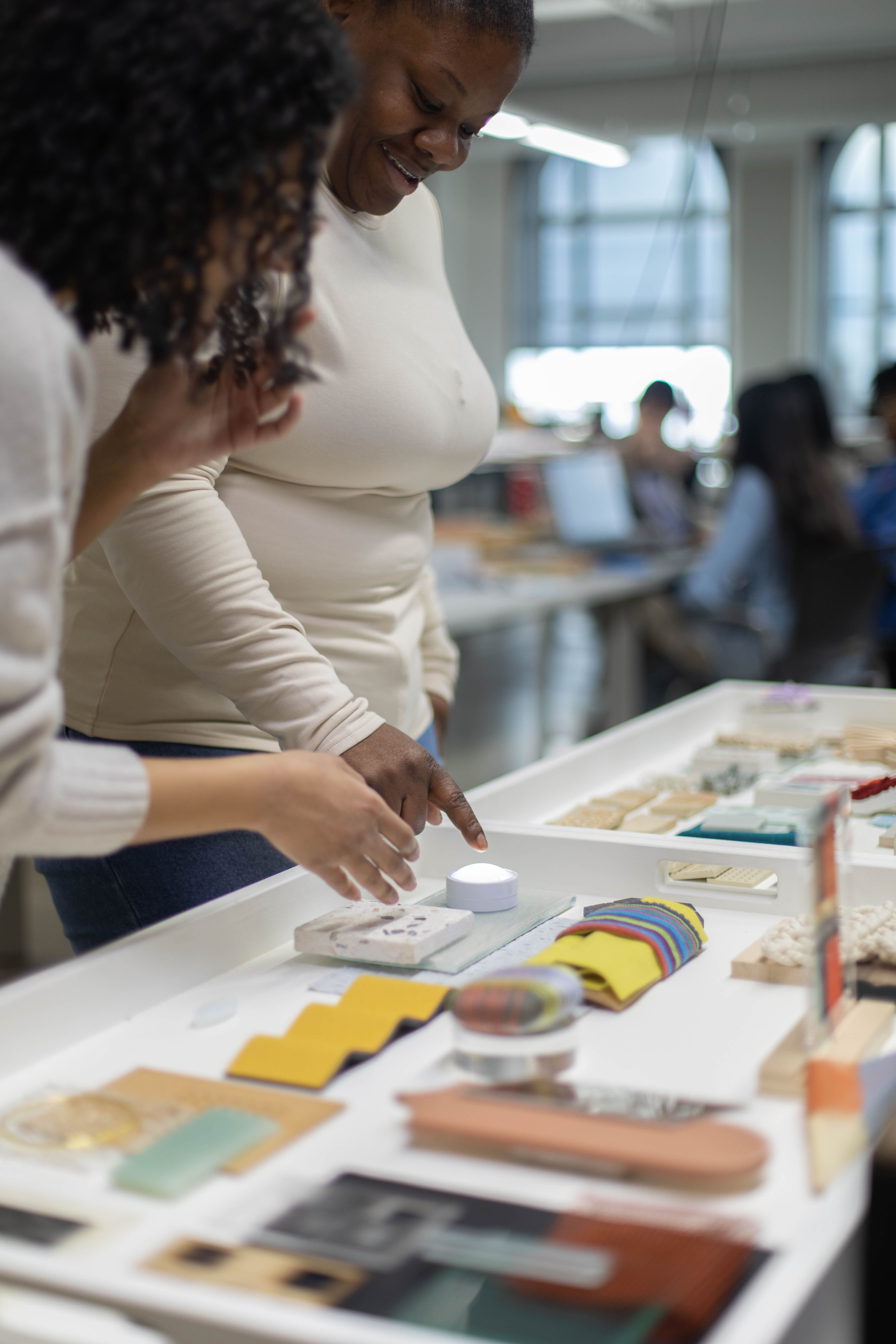
Designing for regeneration, restoring ecosystems, renewing communities, emphasizing sustainability and the potential to inspire positive growth.
During the Winter semester, undergraduate Interior Design and graduate Color & Materials Design students at the College for Creative Studies (CCS) collaborated on a large-scale sponsored project with the Detroit nonprofit, Changing Lives and Staying Sober (the C.L.A.S.S. Agency).
For 20 years, the C.L.A.S.S. Agency has supported outpatient treatment for adults, teens, and children living in the 48219 zip code and its neighboring communities providing vital prevention, intervention, and substance use disorder treatment. Their mission is to provide strategies and treatment services for families focusing on improving quality of life.
“Designing for C.L.A.S.S. brought me out of the city center to look at how other neighborhoods build up their local connections. Through research, we found out how under-resourced some of these places are. Designing for this project gave me a new understanding and opportunity to really do something for the city that we are living in.”
– Yuya Cheng, MFA Color & Material Design
Dr. Karla Mitchell, executive director of C.L.A.S.S., explains that understanding the CDC’s Distressed Communities Index is crucial to grasping the necessity of C.L.A.S.S. in Detroit. The index provides a detailed view of economic well-being at the zip code level, highlighting widespread distress across the city. She also notes that their office location is among the areas most affected by suspected opioid overdoses, closely correlating with the index’s measures of social vulnerability.
For Dr. Mitchell, the nonprofit’s mission is deeply personal.
“Both of my parents had addictions. I recall there being no support for the children and families in a system of services with diminished access and quality. I have an understanding of how support for youth impacted by trauma, distress and social vulnerability should look.”
A newly acquired residential property will serve as the nonprofit’s safe haven for prevention, intervention, and substance use disorder treatment for adults and children. CCS students worked closely with C.L.A.S.S. to design their new headquarters.
The design brief required students to design for regeneration with a focus on actively restoring and renewing ecosystems, communities, or cultural aspects to enhance health and vitality. The aim was to improve overall well-being by emphasizing sustainable practices, mindful materials, and increased capacity for positive development.
Through in-depth interviews, field research, and creative collaboration, CCS students created final projects that put the needs of the nonprofit’s at-risk community first.
In The Third Space by Caden Musa (Interior Design), Dalaa Kain (Interior Design), Tanaya Kotasthane (MFA Color & Materials Design), and Tanushka Karwa (MFA Color & Materials Design) the group took a residential design approach to the project brief, creating a space that feels like home. While Bridge to Belonging by Laura Lin (MFA Color & Materials Design), Yasmin Childs (Interior Design), and Alejandra Castañeda Gomez (Interior Design; exchange student from Spain) focused on interconnectivity through themes of nature and play that encouraged a greater sense of belonging and ownership among visitors.
Each of the final six group projects presented left C.L.A.S.S. incredibly impressed.
“I am ecstatic about the possibilities uncovered by the youth. I am also proud to know that CCS is a gem in the city that anchors an incredible amount of creative genius,” said Dr. Mitchell. “What the students were able to envision and reimagine after connecting to our mission gives our staff and youth great hope for the kind of community this project will create. The passion and connection to the work that C.L.A.S.S. does was evident at every encounter, every design review and we loved it.”
Chair of Interior Design, Sandra Olave, was thrilled with the students’ final outcomes. “This sponsored project was notable for its strong focus on human-centric design. Working with C.L.A.S.S. and Dr. Mitchell greatly contributed to this emphasis, enabling our students to develop empathy for real-life scenarios encountered in day-to-day experience design.”
“This project is C.L.A.S.S Agency’s dream and reaching out to us was like them entrusting us with their ‘field relay batons’ of hope. We got to work on a project that has a more direct impact on students’ current landscape and got the chance to really interact with the environment as well as the community. I thought this project was a really valuable experience and unfolded many facets of what it means to design for humans.”
– An Luu, Interior Design
Speaking to the caliber of work, one group of students was selected to present their final project at Milan Design Week, the preeminent global design fair. Yostina Kaoud (MFA Color & Materials Design), An Luu (Interior Design), Yuya Cheng (MFA Color & Materials Design), and Yasmeen Khalifa (Interior Design) had the opportunity to display and present their final project, Sight to Self, at the design fair in May with over 360,000 visitors in attendance.
Color & Materials Design chair, Melanie McClintock, felt student participation in Milan Design Week was a bonus. She emphasized the outstanding work completed by all of the students, which she credits not only to the students but also to Dr. Mitchell’s passion for C.L.A.S.S. “This was the first time our department has participated in a community-focused project working directly with a local non-profit. Collaborating with Dr. Mitchell and the C.L.A.S.S. team was such a positive and enriching experience – so grounded in a collective desire to do good,” said McClintock. “The outcomes of the projects were incredibly thoughtful, intentionally created with deep consideration for the client and the community. I was really impressed with the level of empathy, dedication, collaboration, and engagement from the students, which was a reflection of their passion for the project.”
As for the future of C.L.A.S.S., Dr. Mitchell hopes to break more boundaries and expand care.
“We look to expand our direct services to include Integrative Behavioral Health, Outpatient and Intensive Outpatient for youth and young adults – in a way that does not feel like institutionalized care to those we serve.”
The final projects will be presented this fall during Detroit’s Month of Design, where this year’s theme, Creative Currents, pays tribute to the city’s unique legacy of artistry and innovation while emphasizing the importance of collaboration and collective action.
This project was funded by the new Practicing Design Center at CCS — a dynamic hub where partner organizations receive top-tier design support, students gain immersive, hands-on skills, and the community benefits from enhanced collaboration.
